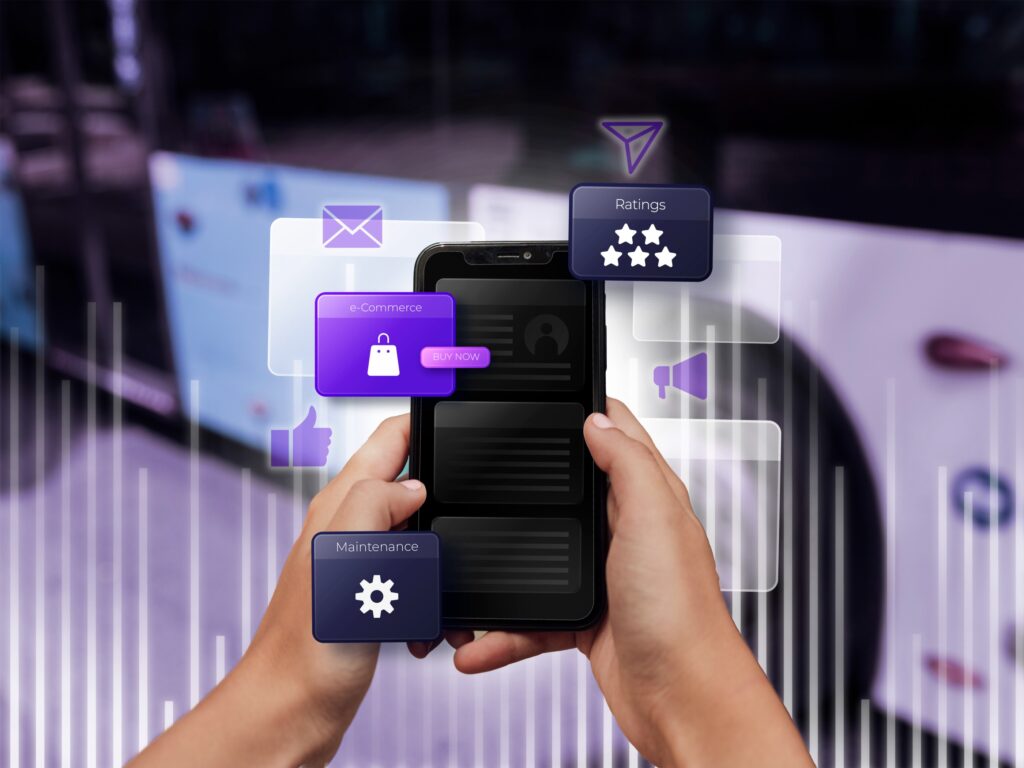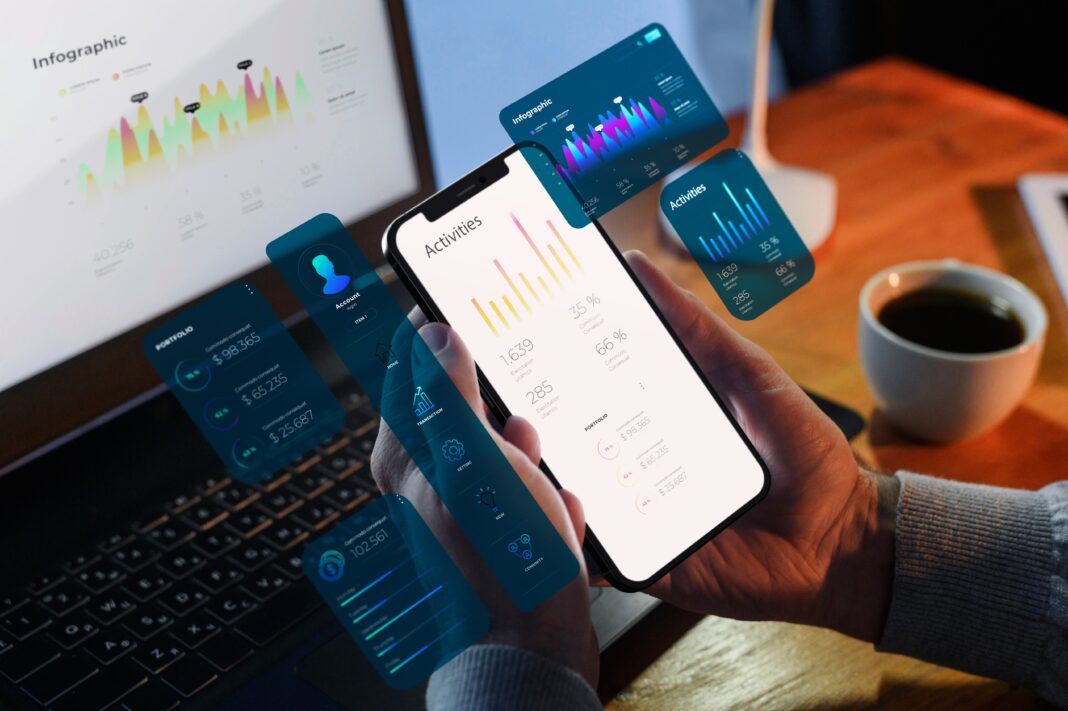The deployment of 5G technology is not just an upgrade—it’s a revolution in wireless connectivity that will fundamentally change how mobile apps are developed and used. Unlike previous generations of cellular networks, 5G brings unprecedented speed, ultra-low latency, and massive device connectivity. These advancements open up new possibilities for app functionality, user experience, and industry applications.

For mobile app developers, understanding the implications of 5G is crucial. Apps that fail to leverage 5G’s capabilities risk becoming obsolete, while those that adapt early will dominate their markets. This article provides an in-depth exploration of how 5G will reshape mobile app development, covering technical enhancements, industry-specific impacts, security considerations, and future trends.
1. The Technical Advantages of 5G for Mobile Apps
1.1 Faster Download and Upload Speeds
5G networks offer speeds up to 10 Gbps, a 100x improvement over 4G. This leap enables:
- Instantaneous app downloads and updates – Users no longer have to wait for large apps or game files to install.
- Seamless 4K/8K video streaming – Media-heavy apps (Netflix, YouTube, TikTok) will deliver ultra-HD content without buffering.
- Faster cloud synchronization – Apps relying on cloud storage (Google Drive, Dropbox) will sync files in real time.
1.2 Ultra-Low Latency (Under 1ms)
Latency—the delay between sending and receiving data—is drastically reduced with 5G. This is critical for:
- Real-time multiplayer gaming – Competitive mobile games (Call of Duty Mobile, PUBG) will eliminate lag, making gameplay smoother.
- Augmented Reality (AR) and Virtual Reality (VR) apps – AR navigation, virtual try-ons (e.g., IKEA Place), and VR training apps will respond instantly.
- Live sports and event streaming – Apps broadcasting live events will reduce delays to near real-time.
1.3 Increased Network Capacity (1 Million Devices per Square Kilometer)
5G supports massive IoT (Internet of Things) connectivity, meaning:
- Smart city apps can manage traffic lights, surveillance, and public transport efficiently.
- Wearable health monitors can transmit patient data to hospitals without network congestion.
- Industrial automation apps can control machinery, drones, and robotics in real time.
2. How 5G Will Change Mobile App Development Strategies
2.1 Shift from On-Device Processing to Edge & Cloud Computing
With 5G’s speed, apps can offload heavy computations to the cloud, reducing the need for powerful local hardware. This means:
- Thinner, faster apps – Apps won’t need to store large datasets locally.
- AI-powered features in real time – Apps like Google Photos can process complex image recognition instantly.
- Cloud gaming dominance – Services like Xbox Cloud Gaming and NVIDIA GeForce Now will replace high-end mobile gaming hardware.
2.2 Enhanced AR/VR and Immersive Experiences
5G eliminates the lag that previously made AR/VR apps impractical. Developers can now create:
- Virtual showrooms – Car dealerships and furniture stores can offer 3D product previews.
- Interactive training simulations – Medical students can practice surgeries via VR, and engineers can troubleshoot machinery in AR.
- Social VR platforms – Apps like Meta Horizon Worlds will become more responsive and lifelike.
2.3 IoT and Smart Device Integration
5G’s ability to connect thousands of devices simultaneously enables:
- Smart home automation – Apps controlling lights, thermostats, and security cameras will respond instantly.
- Autonomous vehicle coordination – Self-driving cars will communicate with traffic systems via 5G-powered apps.
- Industrial IoT (IIoT) monitoring – Factories can track equipment health in real time using mobile dashboards.
3. Industry-Specific Impacts of 5G on Mobile Apps
3.1 Healthcare: Remote Surgery and Real-Time Diagnostics
- Telemedicine apps will support high-definition video consultations with zero lag.
- Wearable ECG monitors can transmit heart rate data to doctors instantly.
- AR-assisted surgery apps will allow surgeons to overlay digital guides during operations.
3.2 Gaming: The Rise of Console-Quality Mobile Games
- Cloud gaming subscriptions (Xbox Game Pass, PlayStation Now) will replace traditional mobile gaming.
- Cross-platform multiplayer games will become seamless, with mobile players competing against PC and console gamers.
- Real-time ray tracing will bring lifelike graphics to mobile devices.
3.3 Retail: Personalized Shopping with AR and AI
- Virtual try-on apps (Sephora, Warby Parker) will use 5G for instant AR rendering.
- AI-powered recommendation engines will analyze shopping behavior in real time.
- Cashier-less stores (Amazon Go) will rely on 5G for instant payment processing.
3.4 Transportation: Smarter Navigation and Autonomous Vehicles
- Real-time traffic management apps will optimize routes dynamically.
- Autonomous delivery drones will be controlled via 5G-connected apps.
- In-car entertainment systems will stream 4K content without buffering.
4. Security Challenges and Solutions for 5G Apps
4.1 Increased Cyber Threats
- More entry points for hackers due to increased IoT connections.
- DDoS attacks could exploit 5G’s high-speed data transfer.
- Privacy risks from real-time data collection.
4.2 How Developers Can Secure 5G Apps
- End-to-end encryption for all data transmissions.
- Zero Trust Architecture (ZTA) to verify every device and user.
- AI-driven threat detection to monitor network anomalies.
5. The Future of 5G Mobile Apps
5.1 Holographic Communication
- Apps will enable 3D hologram calls for business and social interactions.
5.2 The Metaverse and 5G-Powered Virtual Worlds
- Social VR platforms will become mainstream with 5G’s low latency.
5.3 AI-Generated Content in Real Time
- Apps will use AI to create personalized videos, music, and ads instantly.
FAQ
Q1: Do all mobile apps need to be redesigned for 5G?
Not all, but apps that rely on real-time data (gaming, video calls, IoT) must optimize for 5G.
Q2: Will 5G replace Wi-Fi for mobile apps?
In some cases, yes—5G’s speed and reliability make it a viable alternative.
Q3: How does 5G affect battery life in mobile apps?
Initially, 5G may drain batteries faster, but advancements in chip efficiency will mitigate this.
Q4: What industries will benefit the most from 5G apps?
Healthcare, gaming, retail, and autonomous transportation.
Q5: When will 5G be fully integrated into mobile apps?
By 2025, most high-end apps will fully utilize 5G capabilities.
Conclusion
5G is not just a faster network—it’s a game-changer for mobile app development. Developers who embrace its potential will create apps that are faster, smarter, and more immersive than ever before. From healthcare innovations to the metaverse, 5G will redefine what mobile apps can do. The future belongs to those who adapt early—will your app be ready?

